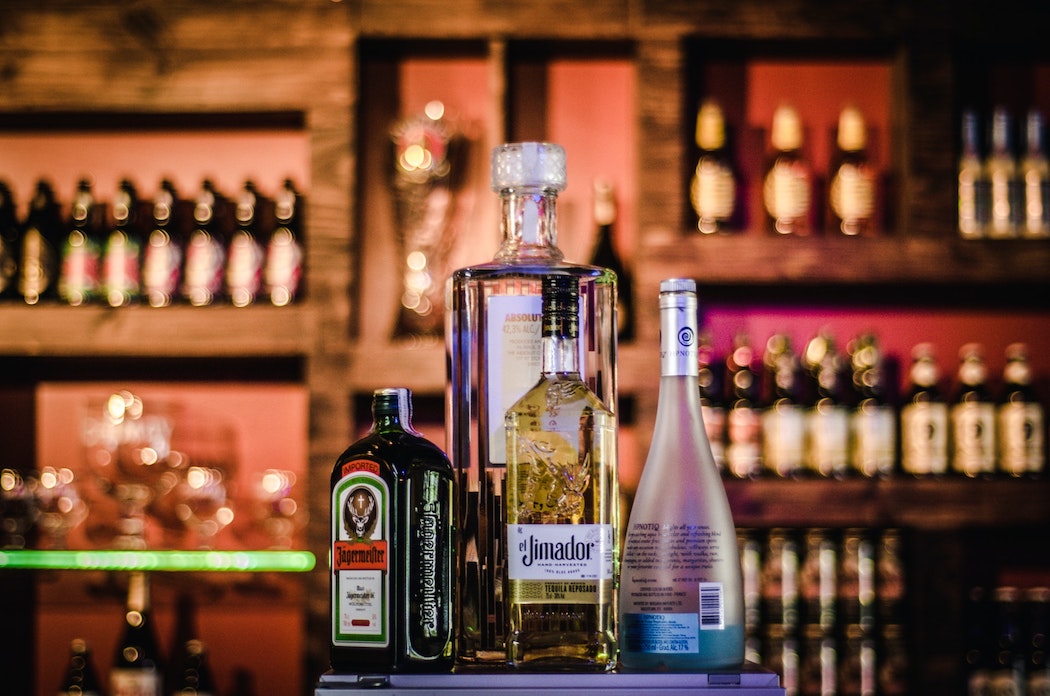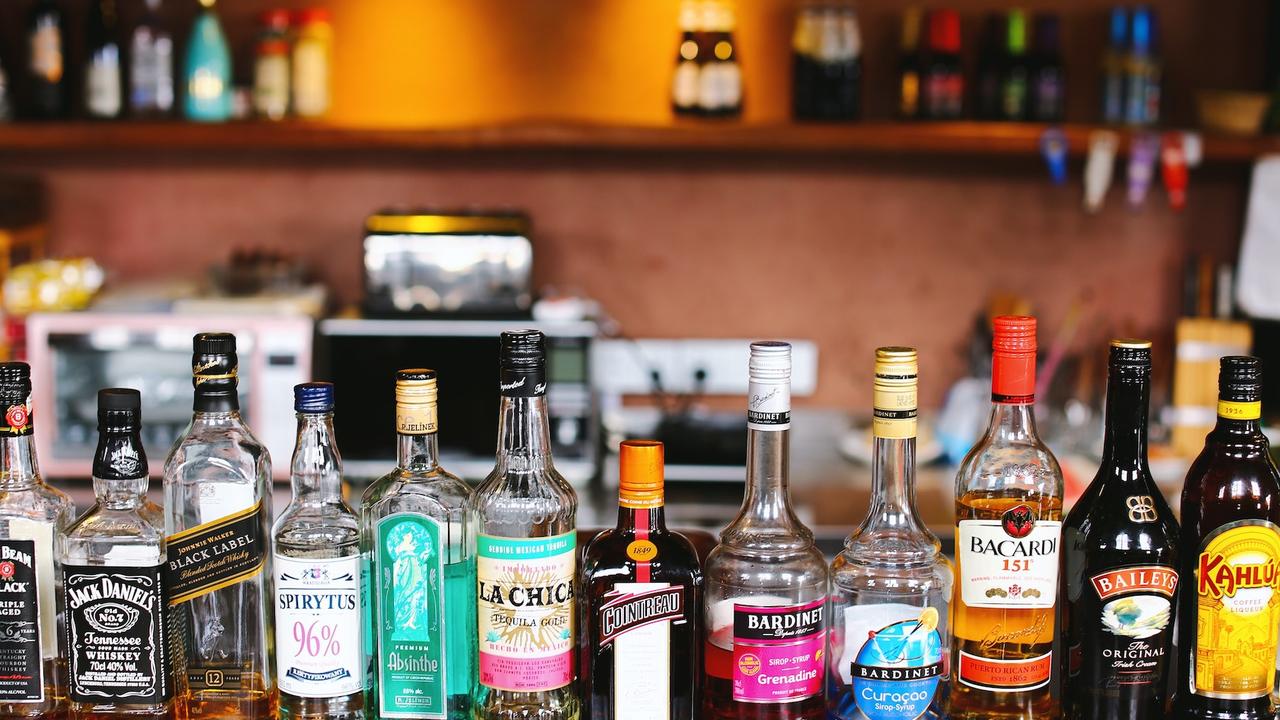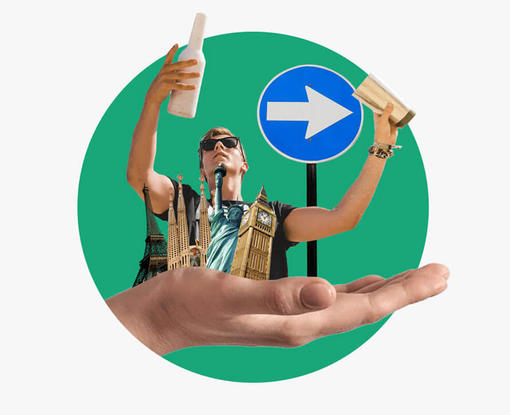It might seem like an obvious answer, but to some of you (in particular those in the US), it can be a tricky question, as these two words look and sound very similar.
So, what is the difference between liquor and liqueur? Let’s unravel this burning booze-related question, tout suite.
They might both contain alcohol, but they are distinctly different in both composition and flavour… Here are some key differences.
What is liquor?

The word 'liquor' is often used as an umbrella term for alcoholic beverages in the US, and is the most common term used to describe them
However, did you know 'liquor' refers only to alcoholic drinks that have been distilled - which means beer and wine are not liquors. Who knew?
Yes, according to Wikipedia: ‘Liquor is an alcoholic drink produced by distillation of grains, fruits, vegetables, or sugar, that have already gone through the alcoholic fermentation process'. This means, rum, vodka, brandy, tequila, whisky and gin are liquors, as they all go through the distillation process.
Distilling increases the alcohol percentage of these liquids giving them a very high alcohol content of usually over 38% ABV. In the UK we refer to these distilled alcoholic drinks as 'spirits'.
And here’s the most important fact about liquors/spirits: they are always unsweetened and there is no added sugar.
Types of liquor
Rum
Derived from the distillation of sugar cane molasses or their juice, this liquor comes as white rum, golden, dark or aged and usually hails from the Caribbean and Central America. Best mixed with Coca Cola for a Cuba Libre, or in a fiery Dark and Stormy.
Vodka
A clear, colourless liquor that's the basis for some of our favourite cocktails. And unlike whiskey or tequila, vodka can be distilled from pretty much anything; grain, potatoes, apples or honey. Russia, Eastern Europe and Scandinavia are the main producers.
Tequila
This one is a little more complex. The potent drink is actually a kind of Mezcal - made from the blue agave plant, but named tequila after the place in Mexico where it is produced. Strict laws in Mexico ensure that tequila can only be produced in the state of Jalisco.
Brandy
Distill wine along with some other fruit juices and you'll end up with Brandy. Cognac and Armagnac are the most famous versions of this ruby-coloured spirit and hail from France, however Italian Grappa and Chilean Pisco and are also brandies.
Gin
This clear distilled spirit is made from a neutral grain like wheat or barley and can have various botanicals added to it. However, the predominant flavour has to be juniper berries (according to the European Union Drinks Spirits Regulations) - otherwise it can't be called gin. G and T anyone?
Whiskey
What is whiskey? Simply speaking it is made from three simple ingredients: cereal grain, water and yeast. More often than not, malted barley is used in the distillation process, but corn and rye can also be used for Bourbon and Rye Whiskey.
What is liqueur?

Let's get technical. The word ‘liqueur’ derives from the Latin word 'liquifacere' which means 'to dissolve or melt'.
This is pretty apt, as liqueurs are actually produced by using liquor or spirits as their base that are then sweetened and flavoured with all manner of herbs and oils, sugars and syrups, nuts, chocolate, cream or coffee.
For example, Drambuie is a whiskey liqueur flavoured with honey and herbs, while Chambord is made from Cognac brandy mixed with blackberries and raspberries.
Types of liqueurs
Just like bartenders, liqueurs come in all shapes and sizes, infused with everything from mint to melon and even acorns (see Catalan drink Ratafia)!
The most common are the ones below - but this list is by no means exhaustive...
Coffee Liqueurs
- Patron XO Cafe - Tequila-based from the infamous brand.
- Sheridan’s from Ireland - Made from whiskey.
- Kahlua - Classic Mexican liqueur and must-have for an Espresso Martini.
- Tia Maria - Produced with Jamaican rum and sugar.
Nut liqueurs
- Bols Coconut – Velvety cream of coconut with rum.
- Frangelico – Made by Franciscan monks (historically) from hazelnuts.
- Disaronno - Flavoured with bitter almonds and marzipan. Very sweet.
Chocolate & cream liqueurs
- Crème de Cacao - Sweet chocolate liqueur with vanilla extract.
- Baileys Irish Cream - The most famous of cream liqueurs, it's perfect in coffee - which turns it into an Irish Coffee.
- Mozart Chocolate Cream - Cocoa, Madagascan vanilla and kirsch liqueur.
Herbs & spice liqueurs
- Goldschlager - Cinnamon flavoured with specks of gold.
- Galliano - An elixir of herbs, plants, roots, barks, spices and flower seeds. Minty fresh.
- Chartreuse - This distinctive bright green brandy-based liqueur is made from over 130 herbs and botanicals.
- Drambuie - Base spirit is Scotch with heather, honey and various herbs. The exact recipe is a secret.
Licorice liqueurs
- Sambuca –The original and the best from Italy.
- Anisette – Aniseed flavoured liqueur.
- Pastis - A French favourite sipped with water.
Citrus liqueurs
- Curaçao – It might be zesty, but this famous drink is blue coloured!
- Cointreau – Possibly the most famous of all the triple secs.
- Grand Marnier – Well-known French brand made from bitter oranges.
- Limoncello – Italian lemon digestif.
Other fruit liqueurs
- Chambord – Raspberries and blackberries blended together with Cognac.
- Midori – Sweet drink made from honeydew melon.
- Crème de Cassis – Famous blackcurrant liqueur and the key to Kir Royal.
- Luxardo Maraschino – A rich liqueur made in Italy from cherries.
How do you drink liqueur?
Liqueurs can be served neat or straight, or 'on the rocks' with ice. You can even sip on liqueur with a mixer - like a Midori and lemon - but nowadays you are most likely to drink liqueurs in cocktails where they are added to up the ante of some of your favourite cocktails - thanks to their myriad flavours.
Liquor v liqueur: What is the difference?

The main difference between liquor and liqueur is the amount of sugar and alcohol in them.
- Firstly, liqueurs have much lower alcohol content than distilled spirits, and hover around the 15% to 30% ABV mark. While liquor has an alcohol content of usually over 38% ABV.
- Secondly, liquor is never sweetened, while most liqueurs add sugar and flavourings in the production process.
- And lastly, liquors are always distilled.
Both are delicious and both have their place - so we say, drink them both!
Want to learn more about the different types of alcohol? Sign up to our four-week bartender course.

